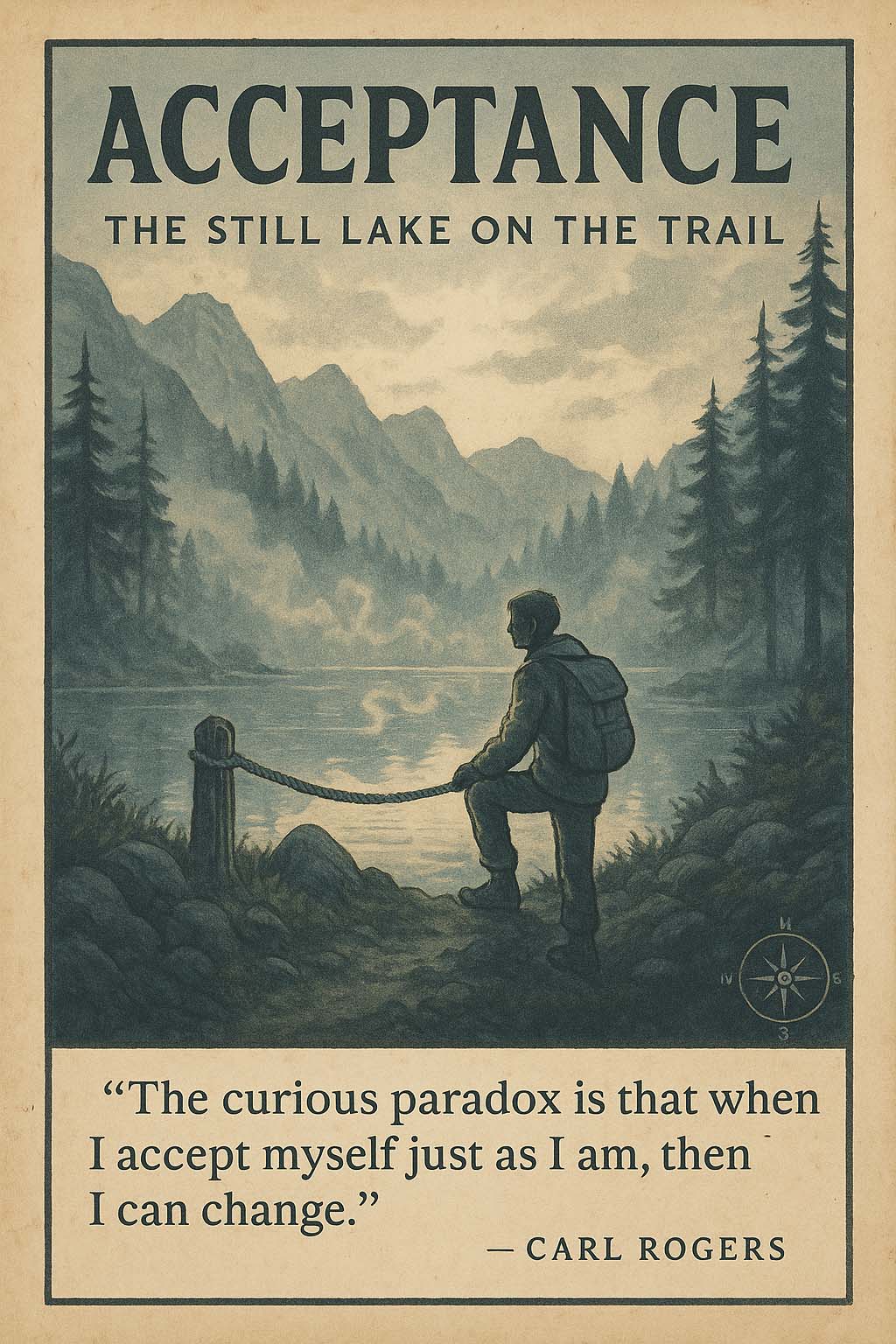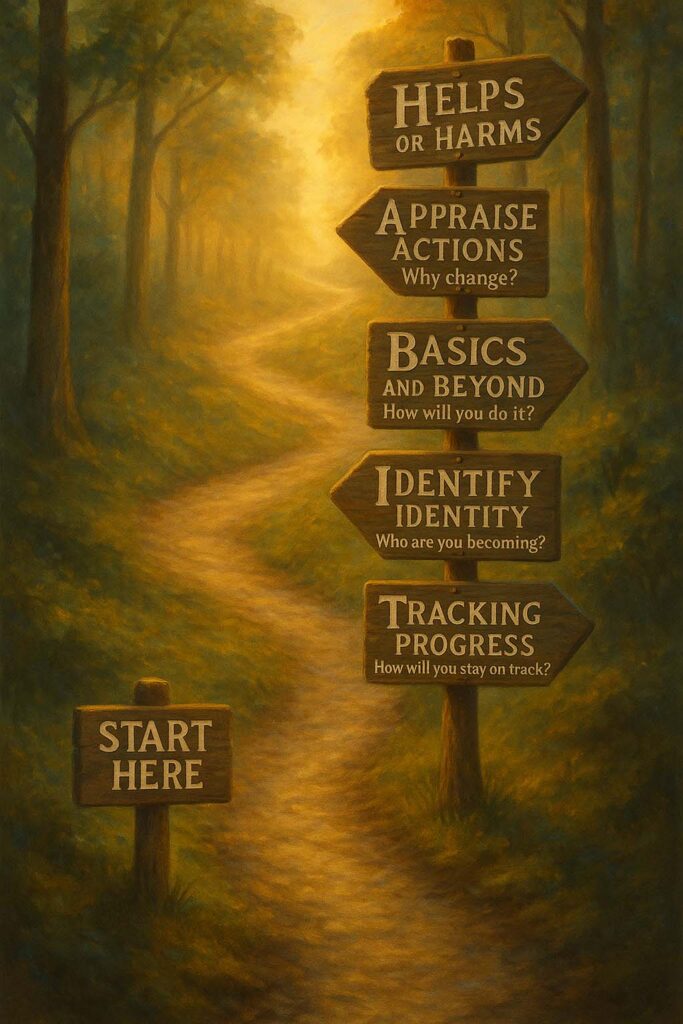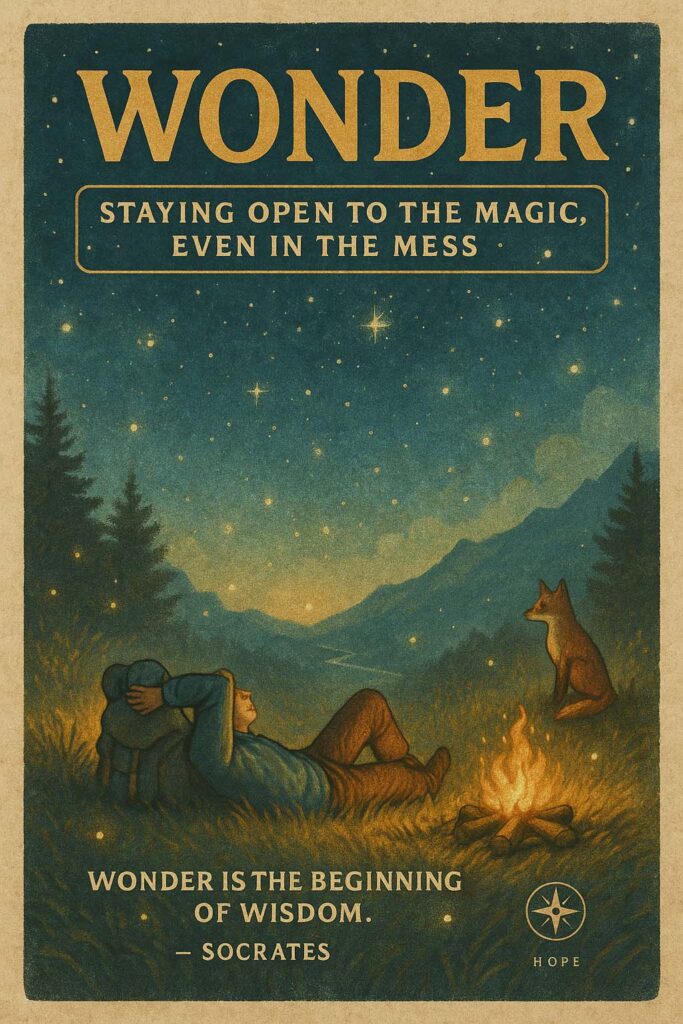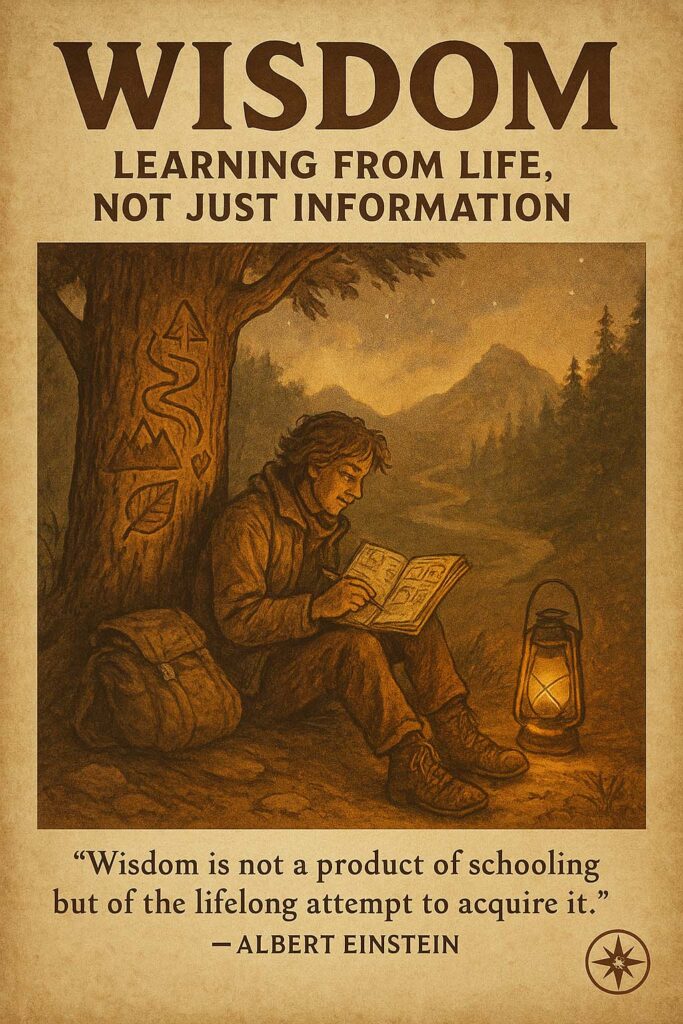
🧭 ACCEPTANCE
“The curious paradox is that when I accept myself just as I am, then I can change.” – Carl Rogers
Acceptance is a still mountain lake you find deep in the ADHD terrain—quiet, reflective, undemanding. It’s not about fixing yourself or pretending you’re further along than you are. It’s the moment you stop hiking uphill just to prove you’re capable, and instead sit beside the water, allowing who you are to be enough for now.
For people with ADHD, acceptance can feel like a luxury we haven’t earned. We grow up internalizing messages that we’re too much, not enough, too scattered, too intense. We try harder, mask better, overachieve, or disappear. But the terrain doesn’t ask for perfection. It asks for presence. Acceptance isn’t the absence of growth—it’s the foundation for it.
This value is healing because it breaks the cycle of shame that so often drives ADHD overwhelm. When we judge ourselves for forgetting, missing details, or needing more time, we reinforce the idea that we are wrong—not just our behavior, but our being. Acceptance says: you are allowed to be as you are while still moving forward. It allows space for executive dysfunction, emotional intensity, and neurodivergent rhythms—without apology.
When we practice acceptance, we stop fighting the trail and start walking it more wisely. The fog clears. Our energy returns. We’re no longer trying to outrun ourselves.
🧭 The HOPE Trail Map
- Helps or Harms: Criticizing myself for my ADHD slips might feel like “motivation,” but does it help me walk the trail better—or drain my energy for the next step?
- Own My Values: I want to live as someone who honors my limits and listens to my needs, not punishes myself for them.
- People and Pursuits: Who in my life allows me to be fully me—unmasked, unfiltered? What practices or places help me feel at home in myself?
- Enact and Evaluate: Today, I’ll notice when I speak harshly to myself. I’ll try one small act of self-acceptance—like saying, “This is hard, and that’s okay.”
⚠️ Trail Challenges
- Rejection Sensitivity makes self-acceptance hard when we feel we've let others down.
- Executive function lapses often trigger perfectionism and shame spirals.
- Social comparisons and masking can make us forget that we’re already worthy.
🪧 Trail Markers: Small Steps Toward Acceptance
- Write a sticky note that says “This is hard, and I’m doing okay”—place it somewhere visible.
- Share a struggle with someone safe, without trying to soften it.
- Let go of one internal “should” and replace it with a gentle “could.”
🔥 Campfire Questions for Reflection
- What part of myself am I most afraid to show others? What would it mean to accept it fully?
- What’s something I used to judge myself for that I now understand more kindly?
- If I believed I was already enough—right now—how would today change?
Acceptance is not giving up on the trail—it’s setting your feet down, noticing the ground beneath you, and whispering: “This is where I begin.”



